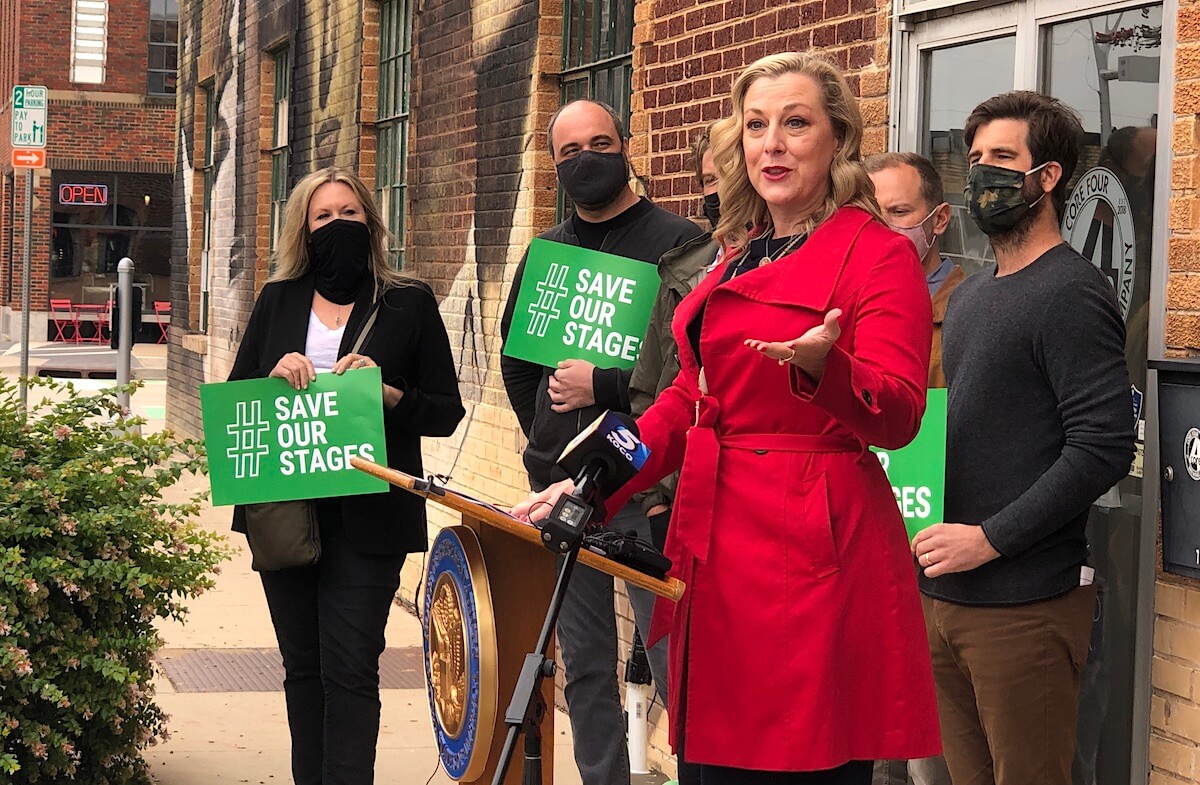

Medical marijuana has grown into a robust Oklahoma industry since the passage of State Question 788 in July 2018, but its future may continue to be limited by marijuana’s status as a Schedule I drug thanks to the federal Controlled Substances Act, which impedes banking access to those in the industry.
Introduced in 2019 and potentially awaiting action in the U.S. House of Representatives, the MORE Act would address the banking concern and others, including vacating some federal marijuana convictions and providing aid to small businesses in the marijuana industry. The legislation had been announced for a September vote in the House, but that was reportedly delayed when some moderate Democrats pushed for a vote on further COVID-19 relief first. The MORE Act could ultimately be heard early in 2021.
Incumbent U.S. Rep. Kendra Horn (D-OK5) and Sen. Stephanie Bice (R-OKC) are locked in a tight race for Oklahoma’s 5th Congressional District seat with Bice narrowly ahead according to a recent survey. The winner could be asked to weigh in on the MORE Act in the next Congress, or other measures that address marijuana in the future.
About The MORE Act
The Marijuana Opportunity Reinvestment and Expungement Act would deschedule marijuana from the Controlled Substances Act.
Some prior federal convictions would be expunged, but the legislation would have no impact on state convictions. It would expand the ability for states to establish their own laws on legalization.
It would also establish funds for job training and legal assistance, as well as aid to small businesses in the marijuana industry.
But for business owners, better access to banking would be a game changer. Currently, those in the industry don’t have access to banking services because of marijuana’s Schedule I status.
“They have difficulty accessing any banking relationships, either to deposit their revenue or pay their bills,” Oklahoma City attorney Blake Johnson said in an interview with NonDoc last year. “And in some cases (they struggle) to secure financing for expansion projects or for capital improvements. In each case, it is a significant challenge.”
Bleak outlook for passage, but could be a prelude
While the MORE Act is expected to pass the Democrat-controlled House whenever it gets a vote, its Senate prospects would seem more grim. Most expect that Senate Leader Mitch McConnell would prevent the legislation from ever coming up for a vote. But that could change depending on November’s election results and which party has control of the Senate.
It’s also possible that even if this legislation never becomes law, it could be a precursor to changes on the federal level in the near future.
Marijuana law attorney Eric Berlin told investment news website Benzinga that the MORE Act is part of a long process.
“It continues to inform the public and Congress,” he said. “This is all part of advancing the ball so that an act along those lines would get passed in 2021, 2022 or if it needs to be, later.”
Business is booming
Since SQ 788 passed in June 2018 the state’s medical marijuana industry has exploded. As of the beginning of September, more than 354,000 Oklahomans have obtained licenses, according to the Oklahoma Medical Marijuana Authority. More than 12,000 business licenses have been sought.
It’s also created millions in tax revenue for the state. From January to the end of July alone, Oklahoma has collected $45 million in tax revenue. It collected $30 million in tax revenue in 2019.
Horn favors reform

Horn, who was a sponsor of the Safe Banking Act that also would have addressed banking and marijuana related businesses, told NonDoc that she is in favor of the MORE Act. She said so far more than 30 states have some form of marijuana legalization, making it a national concern.
“With the passage of medical marijuana here in Oklahoma, there are a lot of issues that are surrounding that,” she said. “What we’ve seen is with businesses and industry, it provides not only an economic challenge not being able to bank, but also a health and safety challenge.”
Horn said she also sees value in the criminal justice reform element of the proposed federal legislation. Minority groups have been disproportionately impacted by prohibition. According to the ACLU, Black Americans are about four times more likely to be arrested for marijuana than white Americans, despite similar levels of usage.
“Addressing the disconnect between state and federal law is an important one, and looking at decriminalization and criminal justice reform issues is a place where we really need to take action because having marijuana as a Schedule I substance while two thirds of the states have passed some form of legalization has significant impact,” Horn said.
Horn said she supports the MORE Act and would vote for it if given the opportunity.
Bice not sold on bill

NonDoc asked Bice three questions via email regarding her view on the MORE Act and general criminal justice reform around marijuana related issues.
Those questions included whether she supported the MORE Act, and if not, what she believes could be done to address criminal justice and banking issues associated with marijuana.
Bice declined to answer the questions, instead providing a statement via a campaign spokeswoman.




















